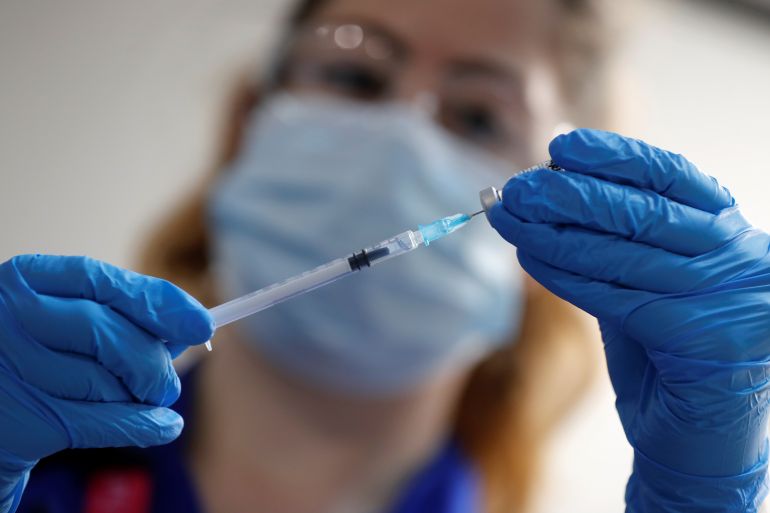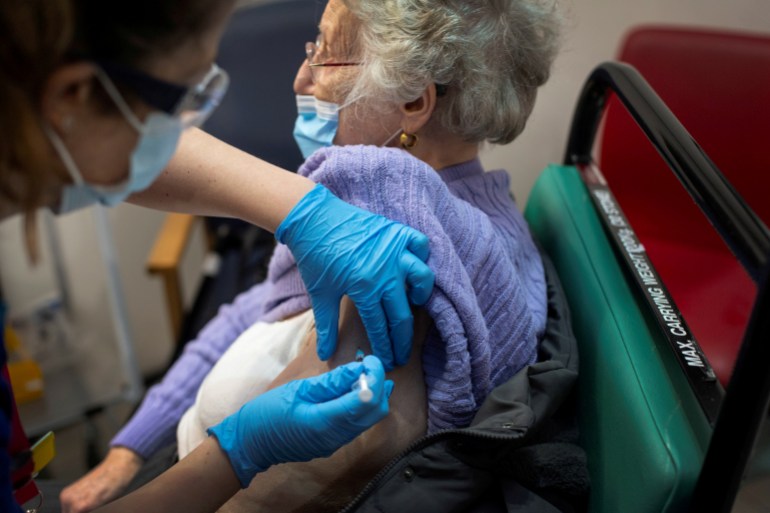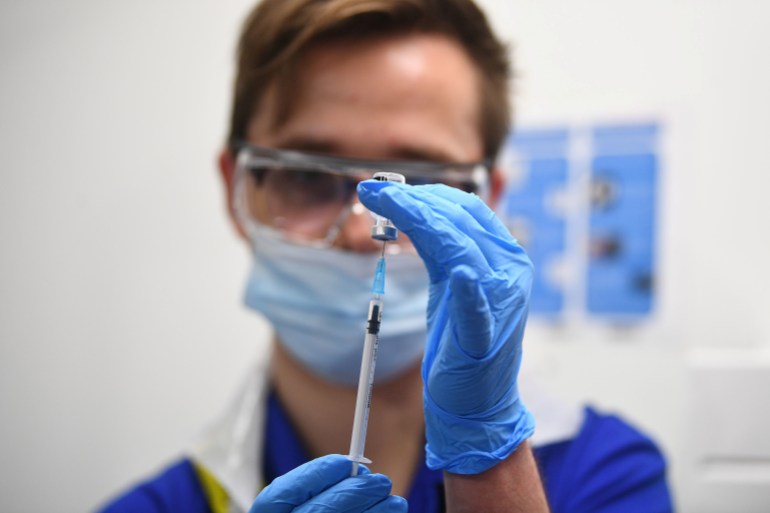US FDA researchers back Pfizer’s coronavirus vaccine data
The vaccine’s efficacy data meets its expectations for emergency use authorisation, the FDA finds in a new report.

Pfizer cleared the next hurdle in the race to get its COVID-19 vaccine approved for emergency use in the United States on Tuesday after the US Food and Drug Administration (FDA) released documents that raised no new issues about its safety or efficacy.
Pfizer and German partner BioNTech submitted data to the FDA last month about their coronavirus vaccine based on data showing the two-dose regimen was 95 percent effective against COVID-19 and had no major safety issues.
Keep reading
list of 3 itemsPfizer-BioNTech’s vaccine: What you need to know in 500 words
UK prepares to roll out Pfizer-BioNTech COVID vaccine: Live news
The vaccine’s efficacy data met its expectations for emergency use authorisation, FDA staff said in a report released ahead of a Thursday meeting of experts who will discuss whether to recommend the Pfizer shot for people aged 16 and older.

In the 53-page report, researchers found that results “showed similar efficacy point estimates across age groups, genders, racial and ethnic groups, and participants with medical comorbidities associated with high risk of severe COVID-19.”
The report also found there was currently insufficient data to make conclusions about the safety of the vaccine in those less than 16 years of age, pregnant women and those whose immune systems were compromised.
On Thursday, a panel of independent scientists will pick apart the FDA’s first-pass review before recommending whether the vaccine appears safe and effective enough for millions of Americans. The FDA, which typically follows the committee’s advice, is expected to issue a decision in the days following the review. If given the green light, the first recipients would be healthcare workers and nursing home residents according to plans laid out by each state.
“The good news is that this very important part of the process is playing out just like it should and just like it does with every other FDA regulatory review process,” said Dr Helen Boucher, chief of infectious diseases at Tufts Medical Center, in an interview with the Reuters news agency.
The UK on December 2 became the first country in the world to approve the use of the Pfizer-BioNTech vaccine.
The first person to be vaccinated under that authorisation was 90-year-old Margaret Keenan, in Coventry, England on Tuesday.

Pfizer and its German partner BioNTech previously reported the shots appear to be 95 percent effective at preventing mild to severe COVID-19 disease in a large, ongoing study. That is based on the first 170 infections detected. Only eight of the infections were among volunteers given the real vaccine while the rest had received a dummy shot.
Data from the trial showed the vaccine began conferring some protection to recipients even before they received the required second shot. The agency’s staff noted that more data would be needed to assess the potential of a single dose shot.
A two-dose vaccination was highly effective in preventing confirmed cases of COVID-19 at least seven days after the last dose, FDA staff said.
That was measured soon after study participants got their second dose. Still unknown is how long that protection lasts. “We’re looking at the best possible data,” Dr Paul Offit of Children’s Hospital of Philadelphia and an FDA adviser recently cautioned. “People worry, reasonably, how about six months later?”
The other critical issue: Safety. Pfizer has reported no serious side effects. Some recipients experienced flu-like reactions – including fever, fatigue or muscle aches – especially after the second dose. It is likely a sign the immune system is revving up, able to recognise and fight back if the real virus comes along.
There were a total of six deaths in Pfizer’s late-stage trial of the vaccine, with two deaths among patients receiving the vaccine and the rest in those on a placebo, the documents showed. All deaths represent events that occur in the general population at a similar rate, FDA staff said.